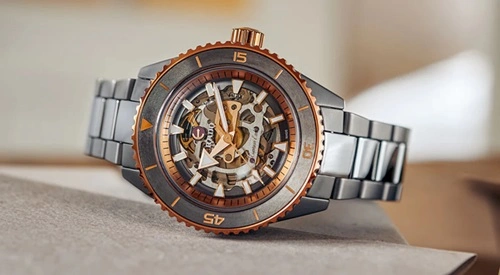Rado, a distinguished Swiss watchmaker, is famous for its innovative designs and use of high-tech materials. The brand’s reputation for quality and luxury has unfortunately led to the proliferation of counterfeit Rado watches in the market. To ensure the authenticity of a Rado timepiece, consider the following detailed guidelines:
1. Purchase from Authorized Retailers
- Authorized Dealers: Always acquire Rado watches from official retailers or authorized dealers. This practice significantly reduces the risk of purchasing counterfeit products. Rado’s official website provides a list of authorized retailers.

2. Examine the Watch Case and Back
- Screw Slots: Authentic Rado watches feature straight screw slots on the back case. Counterfeit versions often have crossed slots, indicating inferior craftsmanship.
- Gold Plating: Genuine Rado watches typically do not have gold plating on the back. The presence of such plating may suggest a counterfeit product.
3. Inspect the Dial and Markings
- Logo and Text: Examine the watch face for the Rado logo and any inscriptions. Authentic models usually display the word “Swiss” accompanied by a three-digit model number at the 6 o’clock position. In contrast, counterfeit watches might incorrectly feature phrases like “Swiss Made” or “Swiss Movement.”
- Spelling and Grammar: Carefully read all text on the dial and case back. Spelling errors or grammatical mistakes are strong indicators of counterfeit products.
4. Assess the Crown and Logo
- Crown Logo: The Rado logo on the crown should be precisely engraved and centered. Counterfeit watches may have poorly attached or misaligned logos, often glued sloppily.
5. Evaluate the Serial Number
- Digit Count: Authentic Rado watches have an eight-digit serial number engraved on the back. Counterfeit versions may display serial numbers with more or fewer digits, such as 13 digits.
6. Test the Watch’s Functionality
- Winding Mechanism: Operate the watch’s winder. In an authentic Rado, the winding should be smooth and unobstructed. Resistance or irregular movement can indicate a fake.
- Luminous Quality: In a dark environment, observe the glow of the dial and hands. Authentic Rado watches use high-quality luminescent materials, providing a clear and consistent glow. Poor or nonexistent luminescence suggests a counterfeit.
7. Analyze the Weight and Materials
- Weight: Authentic Rado watches are crafted with high-quality materials, giving them a substantial weight. Counterfeit watches often feel lighter due to the use of inferior materials.
- Material Quality: Rado is known for its use of high-tech ceramics and scratch-resistant materials. Inspect the watch for any signs of poor craftsmanship, such as rough edges or inconsistent finishes, which are indicative of fakes.
8. Verify Documentation and Packaging
- Certificates and Manuals: Authentic Rado watches come with official documentation, including a warranty card and user manual. Ensure these documents are present and free from errors.
- Packaging Quality: Examine the watch box and packaging materials. High-quality packaging with precise branding is a hallmark of genuine Rado products.
9. Consult an Expert
- Professional Appraisal: If uncertainties persist, seek evaluation from an authorized Rado service center or a reputable watch expert. They can provide definitive authentication.
Conclusion
Authenticating a Rado watch requires meticulous examination of various elements, including craftsmanship, materials, and documentation. By following these guidelines, you can confidently determine the authenticity of a Rado timepiece and make informed purchasing decisions..

